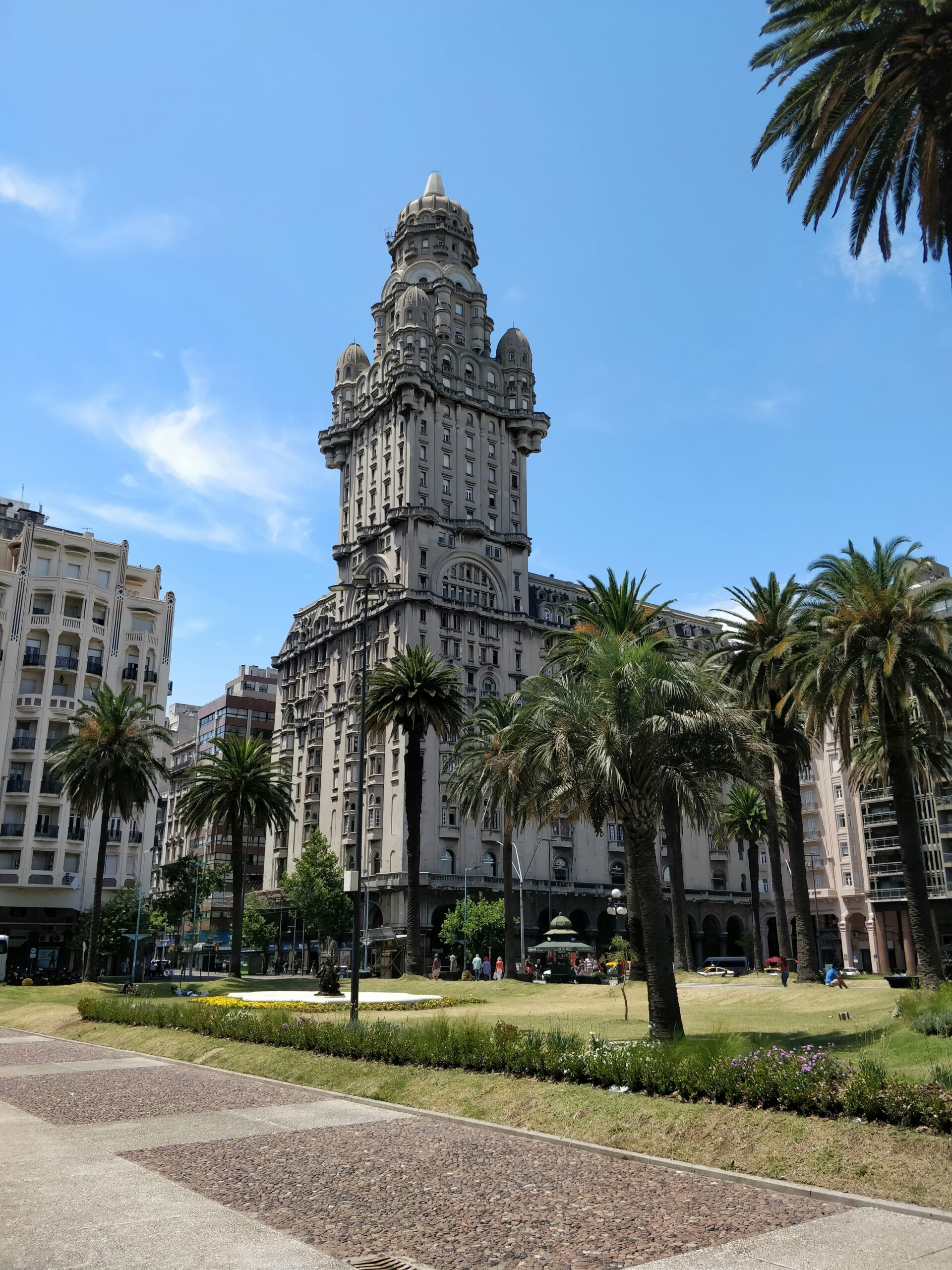You will often hear people say that becoming a tax resident in a territorial tax system is the key to lower your taxes. In this article, we’ll have a look at what it means and how it can help you to save on taxes.
I’ll also share with you the best territorial tax countries based on my experience as a digital nomad tax advisor.
What is a Territorial Tax System?
We speak about a territorial tax system if a country only taxes income which is sourced from within its territory.
If you have a job with a local company or you own a local business, you pay tax on that income. The same applies if you get income from any local investments (e.g. real estate).
On the contrary, any income from outside the country will remain tax free.
Other Types of Tax Systems
Apart from territorial tax system there are two other categories of tax systems.
The first one is the worldwide tax system. As the name indicates, under this system you pay taxes on your worldwide income. Although, that’s the principle. Exemptions can apply though based on double tax treaties.
Under the worldwide tax system and the territorial tax system, you pay taxes based on the fact you are living in that particular country.
As a result, you can avoid paying taxes in those countries by moving out and breaking your ties with the country. However, this doesn’t apply for the last tax system we’ll discuss.
The last type of tax system is citizenship-based taxation. As the name states, you will have to pay taxes based on just having the citizenship of a country who applies this system.
Unlike the other tax systems, you cannot escape taxes by just moving to another country.
The only way to escape taxation is to renounce your citizenship and give up your passport. Which is in any case only an option if you have another citizenship.
There are only a few countries around the world who apply a system of citizenship-based taxation of which the United States is the most prominent one.
Benefits of Territorial Tax Countries
The obvious benefit of territorial tax countries is that you’ll only have to pay taxes on your local income.
Therefore, if you live in any of the territorial tax countries but don’t get any income from that country, you can optimize your taxes.
Consequently, you can save on taxes by having the setup and only receiving income from abroad. However, it’s not as easy as this.
You always need to consult with a professional to ensure that you have a proper understanding of how the local rules are actually applied.
The 10 Best Territorial Tax Countries
We’ll have a look at the best territorial tax countries and describe the main elements you need to know about. I have put the list in alphabetical order as it really depends on your personal situation which one will suit you best.

Costa Rica
- How to obtain tax residency: spend 183 days in the country during the tax year.
- Personal income tax: 10-25% on Costa Rican income.
- Social security contributions: 10,67% for employees and 10,67-18,62% for self-employed individuals.
- Dividend tax: 15% on local source income.
- Capital gain tax: 15% on local source income.
- Corporate income tax rate: 30% but lower rates can apply to small companies.
Georgia
- How to obtain tax residency: spend 183 days in the country over a twelve month period. However, different rules apply for high-net-worth individuals.
- Personal income tax: 20% on Georgian income. Entrepreneurs and business owners can benefit from specific tax regimes where taxes are as low as 1% of turnover.
- Social security contributions: not applicable.
- Dividend tax: 5% but only applicable to dividends from Georgian companies.
- Capital gain tax: 5% but only applicable to the sale of Georgian real estate.
- Corporate income tax rate: 15%. Yet, the tax is only due once you make a payout from the company.
I wrote a whole article on tax residency in Georgia in case you want to learn more about it.

Malaysia
- How to obtain tax residency: spend at least 182 days in the country during the tax year. However, less strict rules apply when you were already a tax resident before.
- Personal income tax: 3-30% on income earned for work performed in Malaysia. Furthermore, foreign source income remitted into Malaysia is taxable. However, till 2026 some exemptions apply.
- Social security contributions: mandatory for Malaysians and permanent residents, optional for other people. Rates depend on your professional status.
- Dividend tax: not applicable.
- Capital gain tax: only applicable on Malaysian real estate depending on how long the property was held.
- Corporate income tax rate: 24% on local source income.
Malta
I added Malta to the list because if you are not domiciled in Malta, you don’t pay income tax on foreign income. Only local income and foreign income you bring into the country is subject to tax in Malta. You can read more about the details of tax residency in Malta in a more detailed article. Below I’ll give a brief overview.
- How to obtain tax residency: spend 183 days in the country.
- Personal income tax: progressive tax rates from 0-35%.
- Social security contributions: 20% for employees and 15% for self-employed individuals. However, maximum contributions apply which limits these.
- Dividend tax: not applicable.
- Capital gain tax: subject to the progressive tax rates if taxable.
- Corporate income tax rate: 35%. Yet, upon distribution of a dividend you can claim back 6/7th of this. Consequently, the actual tax rate is only 5% in the end.

Panama
- How to obtain tax residency: spend at least 183 days in the country.
- Personal income tax: progressive tax rates of 15% till $50.000 and 25% on everything above that. Yet, you only pay tax on local source income.
- Social security contributions: 22%
- Dividend tax: 10% on dividends from a Panamanian company.
- Capital gain tax: 10% on Panamanian income.
- Corporate income tax rate: 25% on local source income.
Paraguay
- How to obtain tax residency: obtain residency permit and tax identification number and keep this active by visiting once per year.
- Personal income tax: 8-10% on Paraguayan income.
- Social security contributions: social contributions are only due if you are employed in Paraguay.
- Dividend tax: 8% but only applicable to dividends from Paraguayan companies.
- Capital gain tax: 8% but only applicable to the sale of Paraguayan assets.
- Corporate income tax rate: 10% on local income.
If you like to learn more about tax residency in Paraguay you can head to my dedicated article.
Philippines
- How to obtain tax residency: move to the Philippines for an undefined time period (have long-term visa).
- Personal income tax: progressive tax rates from 15-35%. These only apply to local income if you don’t have a Filipino passport.
- Social security contributions: not applicable on foreign income.
- Dividend tax: 10% but only applicable to dividends from Filipino source.
- Capital gain tax: subject to the progressive income tax rates but specific rates apply for certain investments. Furthermore, this only applies to capital gains from Filipino source.
- Corporate income tax rate: 25%. However, in some cases lower rates can apply.
Also for the Philippines I wrote a dedicated article with more details about tax residency in the Philippines.

Singapore
- How to obtain tax residency: spend at least 183 days in the country or reside there on a consistent basis (1).
- Personal income tax: progressive tax rates from 2-24%. You only pay tax on local source income.
- Social security contributions: only applicable if you are a permanent resident in Singapore. The rates depend on your professional status and for the first years there are lowered rates.
- Dividend tax: not applicable.
- Capital gain tax: not applicable.
- Corporate income tax rate: 17% on local source income.
Thailand
- How to obtain tax residency: spend at least 180 days in the country during the calendar year.
- Personal income tax: the progressive tax rates go from 5-35%. You only pay tax on local source income or money you bring into the country.
- Social security contributions: 5% but capped to €250 per year. Exemptions can apply if you don’t have any local source income.
- Dividend tax: 10% for dividend distributions from a Thai company.
- Capital gain tax: subject to the ordinary progressive rates and not applicable to foreign source capital gains.
- Corporate income tax rate: 20%.
You can learn more about tax residency in Thailand and also about the visas for Thailand in the specific articles.

Uruguay
- How to obtain tax residency: spend 183 days in the country or have your vital interests there.
- Personal income tax: progressive tax rates from 10-36%. In principle, only local income is subject to tax.
- Social security contributions: depends on your personal and professional situation.
- Dividend tax: 7% on payments by a local company.
- Capital gain tax: the rate depends on the asset category but does only apply to income from Uruguayan source.
- Corporate income tax rate: 25% on local source income.
You can check the details regarding tax residency in Uruguay in my other article.
Factors to Consider for Establishing your Tax Residency
Understanding the tax system of a country is key to understanding your tax liability. However, that’s only the start.
Although, we put countries in those categories of tax systems, the interpretation and application of the laws can differ. Sometimes, some exemptions are also only applicable for a set time frame.
Furthermore, you want to know what is required to become a tax resident of a country. In some countries you need to be physically present for a set amount of time to become a tax resident.
In other places, it can be sufficient to have sufficient other connections to the country. While for others a combination of both is required.
Finally, you also want to consider what is required to leave your current country of tax residency.
You don’t want to make any mistakes that will hurt you in the future. Some countries, for example, will still tax you even after you left if you move to a tax haven.
Work With Me
Many people try to figure out these things on there own. Often times, spending hours in the process and still ending up without practical answers.
I founded DigitalNomadTax to help other nomads. So, if you want to get input from a tax advisor with years of experience in international taxation who is a nomad himself, reach out to me!
